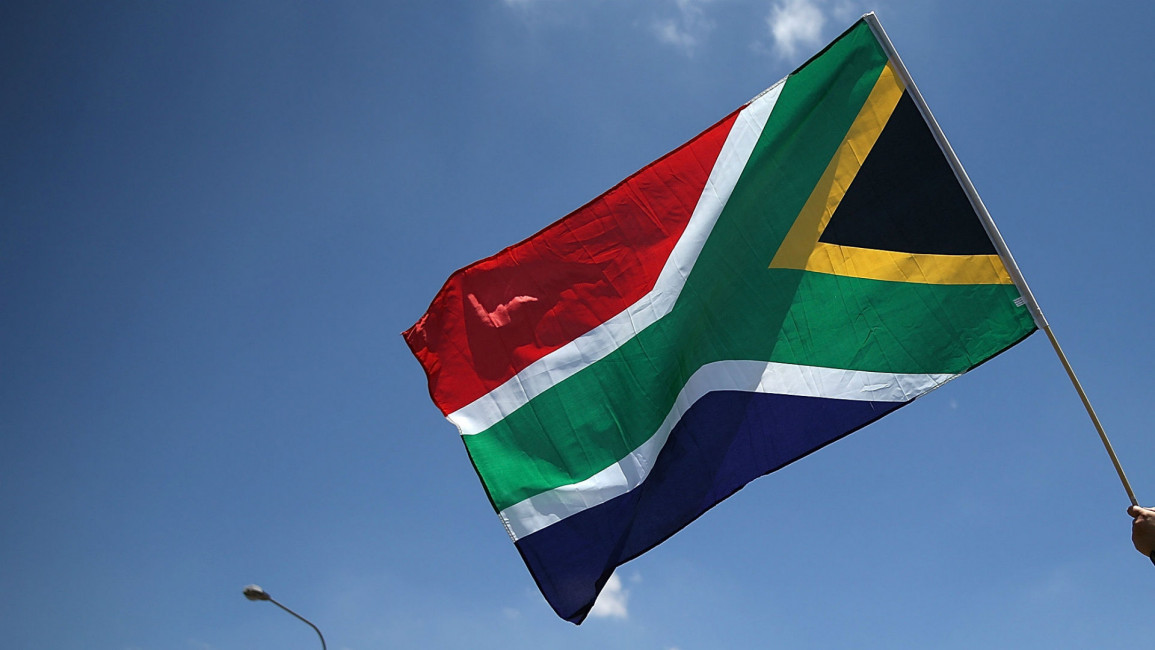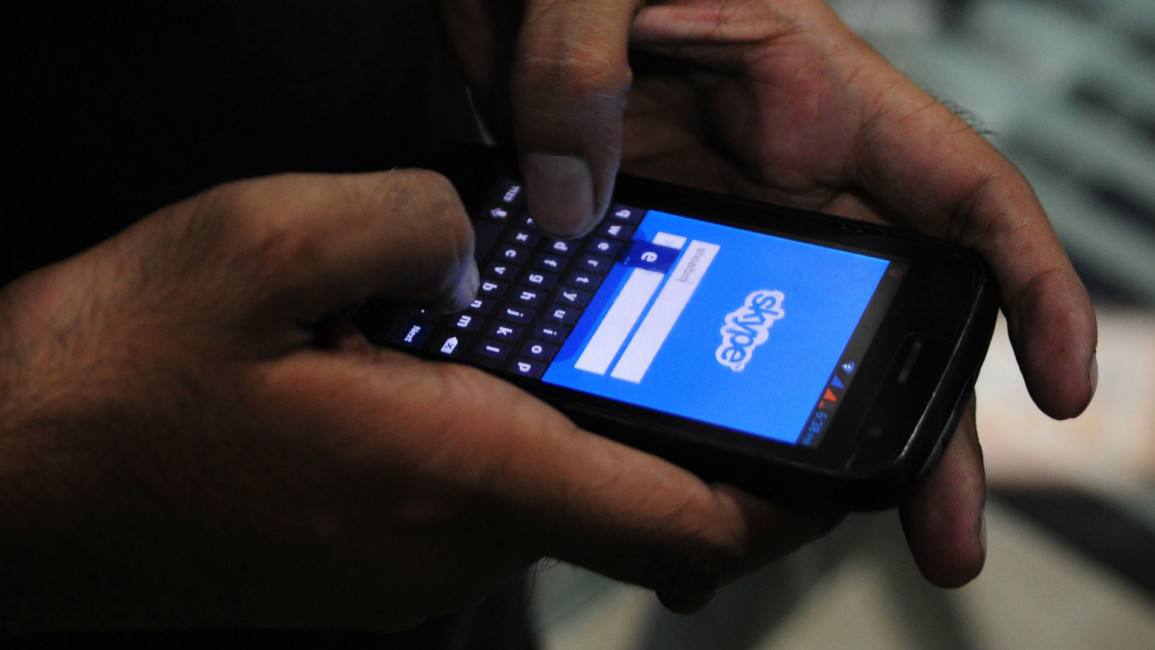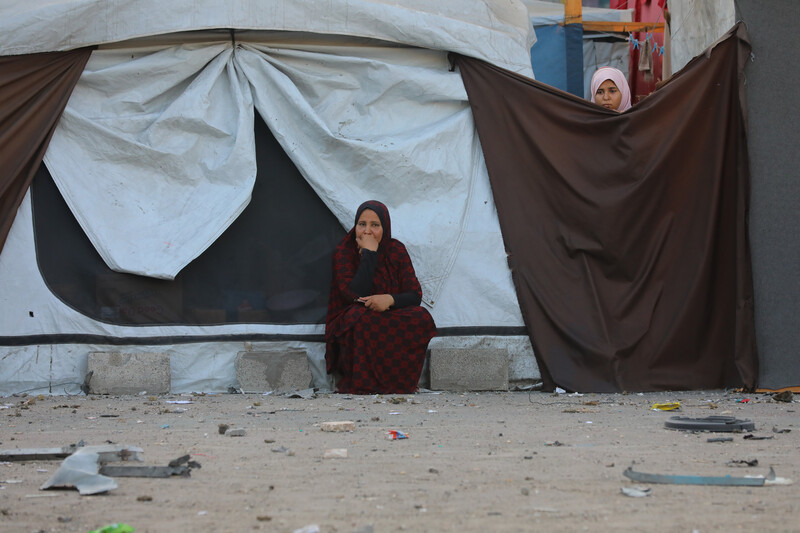The GNU government has yet to comment publicly on the situation in Gaza or the ICJ proceedings since its formation.
Joseph Chirume
South Africa
12 July, 2024

Pro-Palestinian parties in South Africa fear that the Government of National Unity will stop putting the struggle for a free Palestine at the forefront of South Africa's political debate [GETTY]
Pro-Palestine activists in South Africa are voicing scepticism over the Government of National Unity (GNU)'s foreign policy, fearing that the new coalition might downgrade the country's historic support for the Palestinian struggle.
They are concerned the new African National Congress-led (ANC) government might shift its stance after failing to secure an absolute majority in the 29 May 2024 general elections.
This failure culminated in the formation of a coalition government with other political parties, including the Democratic Alliance (DA), known for its support for Israel.
The composition of the GNU's executives is concerning for some civic organizations like the South African Boycott, Divestment and Sanctions (SABDS) Coalition.
“We are sure that no post-Apartheid South African government will want to stand on the wrong side of history," Roshan Dadoo of SABDS told The New Arab, but qualified: “The SABDS Coalition calls on the incoming government to express its support for our legal team at the ICJ and take all measures to ensure our country is not complicit in Apartheid Israeli’s genocide of the Palestinian people in line with our international obligations".
“Failure to do so will damage our country’s international reputation and serve to mobilize South Africans against the GNU. The vast majority of our people support the just struggle of the Palestinian people and oppose genocide. For us it is a red line.”
The GNU government has yet to comment publicly on the situation in Gaza or the ICJ proceedings since its formation.
The SABDS have praised President Cyril Ramaphosa for appointing Ronald Lamola as Minister of International Relations and Cooperation. Minister Lamola in his former role as Minister of Justice, had shown his commitment to ending the Israeli state's genocide, apartheid, and occupation at the International Court of Justice.
However, the pro-Palestine activist group have expressed their dissatisfaction with the appointment of Patriotic Alliance (PA) leader Gayton Mckenzie as Minister of Sports, Arts and Culture.
Mackenzie, who officially joined cabinet on July 2, has openly expressed his sympathies for Israel, going as far as to offer it 'prayers'. Mackenzie talso made a controversial visit to Israel recently together with his deputy, Kenny Kunene.
"In visiting Israel, McKenzie and Kunene are endorsing and legitimizing a state that is practicing the crime against humanity of Apartheid as defined in the UN Apartheid Convention," Dadoo of the SABDS said.
Dadoo added that given Mckenzie’s relationship with Israel, it is ironic that he is heading a ministry that should be lobbying for boycotting Israel in arts, sports and culture, a key demand for the pro-Palestine movement.
“South Africa is expected to be at the forefront of calling for the apartheid, genocidal state to be kicked out of the upcoming Olympics and FIFA games and for it to implement a sports boycott policy.”
Muminah Salie of the University of Cape Town told TNA that civil society will now need to ramp up their lobbying to pressure the ANC to honor its longstanding support for Palestine.
“Since the GNU is new, we are not sure what its stand is, while the ANC has not made any formal statement that I know of regarding Palestine [since the election]".
“The ANC has historically been pro-Palestine since apartheid, and I don’t think they will be changing their stance," she added.
"But the amount of work they will be doing with regard to pro-Palestinian activities or activism might change since the GNU will need to put any government decision to a vote and that vote will include the DA who has been pro-Israel and has been saying that South Africa should focus on its own problems...we shall have to wait and see.”
Salie added, “From the civic society perspective it means we can’t rely on our government to do anything anymore. We actually have now to take things into our hands and put more pressure on the government to act and that means we need to acknowledge that the ICJ was not the end what SA can do about Palestine".
For his part, Palestine Solidarity Campaign (PSC) chairperson, Martin Jansen feared that the ANC might use the GNU to skirt its pledges to Palestine.
He told TNA, “As the PSC, we’re very much concerned about the GNU, especially the composition because the two biggest parties are the ANC and the DA with the DA virtually having a veto in terms of its agreement regarding decision making. We are concerned about what this means, firstly with the government’s case at ICJ.
“The history of the ANC government except the case at the ICJ, up to now has done nothing tangible to pressurize Israel to stop its ongoing incremental genocide which has been going since 1947-48...the government should have expelled the Israeli ambassador to South Africa and enforced boycotts, divestment and sanctions against Israel. We haven’t been impressed by the ANC government.”
Specifically, Jansen cited the National Prosecuting Authority (NPA) and the Ministry of Justice, which he says have done nothing to arrest and prosecute South Africans serving in the Israel occupation forces, as an example of the South African government's reluctance to take further meaningful action against Israel.
"The DA has given its support for and defended Israel for many years and has Zionists in its ranks. Then our government will use the DA as a cover for its inaction against Israel," he claimed.
Jansen said the PSC had entered into an agreement with several political parties to adopt legislation in the new government on full boycott, divestment and sanctions.
“All the pro-Palestine supporting parties did sign that pledge including the ANC and the Economic Freedom Fighters (EFF), these parties have a majority in parliament. We’re hoping that the ANC will not use the GNU agreement they have with the DA as an excuse not to proceed on the basis of what they committed themselves to by signing the pledge. We are planning to make them be accountable for that.”
He said the PSC hoped to submit a draft bill to these parties in July.
“After that, we expect them to submit it to parliament for debate and eventually adoption as soon as possible. Failing that we will then step up protests and various campaigns to get them to adopt the legislation for the BDS,” said Jansen.
The New Arab has contacted the South African Ministry of International Cooperation for comment but has not received a response by publication time.
Analysis
South Africa's perplexing relationship with Israel
In-depth:

11 December, 2023
At a glance, South Africa’s position on Israel makes its leadership appear sympathetic to the Palestinian struggle.
South Africa was one of the first countries to call for Israel to be officially classified as an apartheid state and has referred Israel to the International Criminal Court to be investigated for war crimes for its actions in Gaza over the last two months, during which time the Israeli army has killed almost 18,000 Palestinians.
The South African government has called Israel’s actions in Gaza a “genocide” and a “holocaust”, and at COP28, South African President Cyril Ramaphosa noted in his address that "South Africa is appalled by the cruel tragedy that is underway in Gaza. The war against the innocent people of Palestine is a war crime that must be ended now”.
Yet a deeper look shows that South Africa also maintains strong relations in some areas with Israel. In 2021, trade between South Africa and Israel was valued at $285 million, one-third of Israel’s total trade with Sub-Saharan Africa, and Pretoria has refused to cut economic ties regardless of civil society pressure.
Even though in November the parliament voted overwhelmingly to expel the Israeli ambassador, the president has refused to do so.
"For a period of nearly 20 years Apartheid Pretoria and Tel Aviv were significant partners. This ranged from commercial ties to nuclear weapons collaboration"
Without knowing the history of the two countries’ relations, South Africa’s seemingly contradictory approach may appear senseless. South Africa’s history, both pre- and post-apartheid has been strongly connected to Palestine and Israel, but on extreme ends of the political spectrum.
While South African Apartheid Prime Minister P.W. Botha was continuing his close allyship with then-Israeli Defence Minister Ariel Sharon in the early 1980s, the Palestine Liberation Organisation (PLO) was an increasingly strong supporter of the resistance group, the African National Congress (ANC) and its leader Nelson Mandela.
Upon Mandela’s release from prison in 1990, one of the first leaders he met with was his close friend and confidante, PLO leader Yasser Arafat in Zambia, who Mandela referred to as his ‘comrade in arms’ and who he consulted with prior to the Oslo agreements. Mandela is a treasure trove of quotes about Palestine, with the most famous being “Our freedom is incomplete without the freedom of the Palestinians”, which adorns posters around the world.
RELATEDIn-depthAlessandra Bajec
Not so long before, things had been very different. During the 1970s and 1980s South Africa was a proxy for European countries to sell weapons to Israel in an exclusive and complex system.
“For a period of nearly 20 years Apartheid Pretoria and Tel Aviv were significant partners. This ranged from commercial ties to nuclear weapons collaboration. It included joint efforts to develop and test sophisticated weapon systems including long-range missiles,” Hennie van Vuuren, author of Apartheid Guns and Money, told The New Arab.
“South Africa and Israel were firm allies, bound together by common ideological and economic interests.”
In his book, he names similarities between South Africa and Israel during that time - they were both isolated from their neighbours, highly militarised and based their segregation systems on biblical texts - which made them “firm friends”. The South African and Israeli apartheid systems were even modelled on each other’s, even though Israel insisted internationally that it was against apartheid in South Africa.

In 1961, Prime Minister Hendrik Verwoerd, also known as the ‘architect of apartheid’ said, “Israel is not consistent in its new anti-apartheid attitude. They took Israel away from the Arabs after the Arabs lived there for a thousand years… Israel, like South Africa, is an apartheid state”.
Today, both the pro-Israel lobby and pro-Palestine movements in South Africa are significantly large, with pro-Palestine marches bringing together up to 200,000 people. The groups are openly hostile towards each other, even more so since 7 October, when protestors have come up against each other at heated protests.
The South African Jewish community is largely pro-Israel, which Jo Bluen attributes to the post-World War Two relationship between Jews and the Apartheid government. Bluen is the Palestine solidarity and media liaison organiser at South African Jews for a Free Palestine (SAJFP), a group that regularly receives death threats from hardline supporters of Israel and ‘community safety’ organisations.
“Most Jews in South Africa came through the Holocaust, or were escapees from Eastern Europe, and now they had come into another genocidal fascist state and I am enraged that you could have come through that and not be pro-Palestine,” Bluen told TNA.
"South Africa and Israel's relationship, both historically and at present, is clearly a complex one, with the South African government see-sawing from chastising Israel to turning a blind eye to its actions"
“When they came to South Africa, after having liminal whiteness in Europe, the apartheid government regarded Jews as ‘white’, so most Jews aligned with that and hence the apartheid government’s pro-Israel stance.”
According to Bluen, the pro-Israel Jewish community is growing increasingly militant.
“Jewish Schools like King David in Johannesburg and Herzlia in Cape Town are Zionist academies,” says Bluen. “Herzlia is actively recruiting for the IDF, you sing the Israeli national anthem, and for your Bar Mitzvah you give money to the Jewish National Fund. You are educated into joining a death cult.”
South Africa has also made big concessions to Israel on some sensitive bilateral issues.
RELATEDAnalysisAlex Thurston
South Africans have been serving in the Israeli military for many years, which is illegal under South African law. In fact, one fifth of graduates from Herzlia enlist in the Israeli army straight after graduation. Complainants have filed lawsuits about this for the last 15 years trying to get the state to prosecute them, but none have been opened.
In 2009, South African investigative television show, Carte Blanche, exposed the scandal of Shin Bet, Israel’s internal security service, officials operating and detaining passengers at South African airports. Israeli security personnel are also sometimes present at Jewish schools and other Jewish institutions.
So why is South Africa’s political stance on Israel so different to its other actions?

Martin Jansen, chairperson of the Palestine Solidarity Committee, attributes this to a number of things. One is that South Africa wants to play the role of mediator between Israel and the Palestinian leadership, something it has done since its own internal mediation experience which led to its first democratic elections in 1994.
Another is that the ruling party, the ANC, has been moving further to the right and that there are important business and economic ties, including the mining industry, which stop the South African government from applying more concrete measures against Israel.
“If South Africa were to adopt BDS (Boycott, Divestment and Sanctions) measures against Israel it will be a big move politically,” says Jansen.
"If South Africa were to adopt BDS measures against Israel it will be a big move politically"
“Because of South Africa’s well-known history all over the world, it could lead by example, first in Africa at the African Union and then at the United Nations. This is where South Africa’s strength lies, beyond economic and political power. So hopefully we can force government to do exactly that, and hopefully it will have a domino effect.”
South Africa and Israel’s relationship, both historically and at present, is clearly a complex one, with the South African government see-sawing from chastising Israel to turning a blind eye to its actions.
Perhaps the ongoing Gaza war will be the tipping point for South Africa to decide where it stands with regards to Israel, and whether its legacy of Palestinian solidarity overrides its desire to balance other interests.
Ilham Rawoot is a freelance writer based in Cape Town. She has previously written for the New Internationalist, Al Jazeera, and Africa is a Country and focuses on climate justice and the extractive industry, Palestine, and decolonial struggles













 Russian President Vladimir Putin listens to Moscow-appointed head of Russian-controlled Zaporizhzhia region of Ukraine, Yevgeny Balitsky during their meeting at the Novo-Ogaryovo residence outside Moscow, Russia, July 12, 2024. © Vyacheslav Prokofyev, AP
Russian President Vladimir Putin listens to Moscow-appointed head of Russian-controlled Zaporizhzhia region of Ukraine, Yevgeny Balitsky during their meeting at the Novo-Ogaryovo residence outside Moscow, Russia, July 12, 2024. © Vyacheslav Prokofyev, AP
